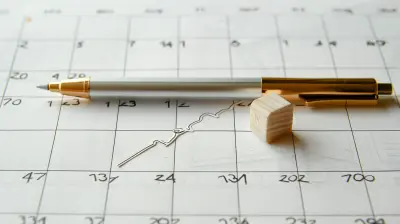Exploring the Outdoors: Nature’s Role in Toddler Development
13 June 2025
Let’s be honest — keeping up with toddlers is like chasing a whirlwind on roller skates. They’re bursting with curiosity, full of energy, and fearless in their desire to touch, taste, and climb... well, pretty much everything. So why not give them the ultimate playground designed by Mother Nature herself?
Stepping outside isn’t just about burning off energy (although, let’s admit it—that’s a big bonus). Nature is a powerhouse for child development, especially during those crucial toddler years. From boosting motor skills to nurturing creativity, the great outdoors plays a vital role in shaping well-rounded, confident little humans.
Let’s dive into how the simple act of going outside can make a huge impact on your toddler’s growth and development.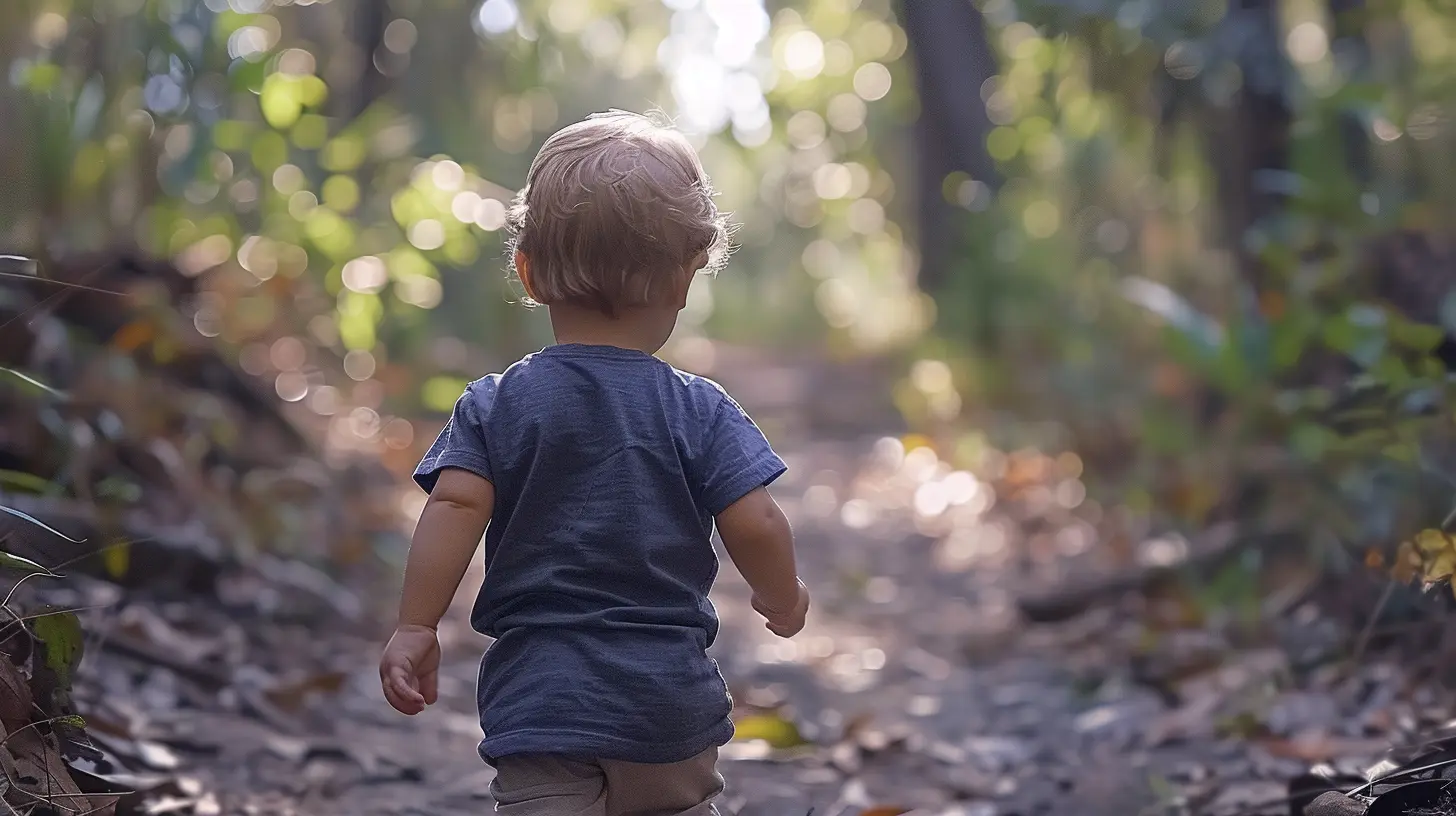
Why Toddlers and Nature Are a Perfect Match
Ever notice how your toddler lights up when they’re outside? Whether it’s stomping in puddles, digging in the dirt, or picking dandelions, they instinctively know: nature is fun, messy, and full of wonder.But there’s more to it than just play. Outdoor experiences stimulate every one of their senses. That rustling of leaves? That texture of bark? That distant chirp of a bird? It’s like an all-you-can-eat buffet for their brain. And toddlers are hungry for learning.
Nature is unpredictable, unscripted, and ever-changing. This means every trip outdoors offers new challenges and discoveries—no batteries required.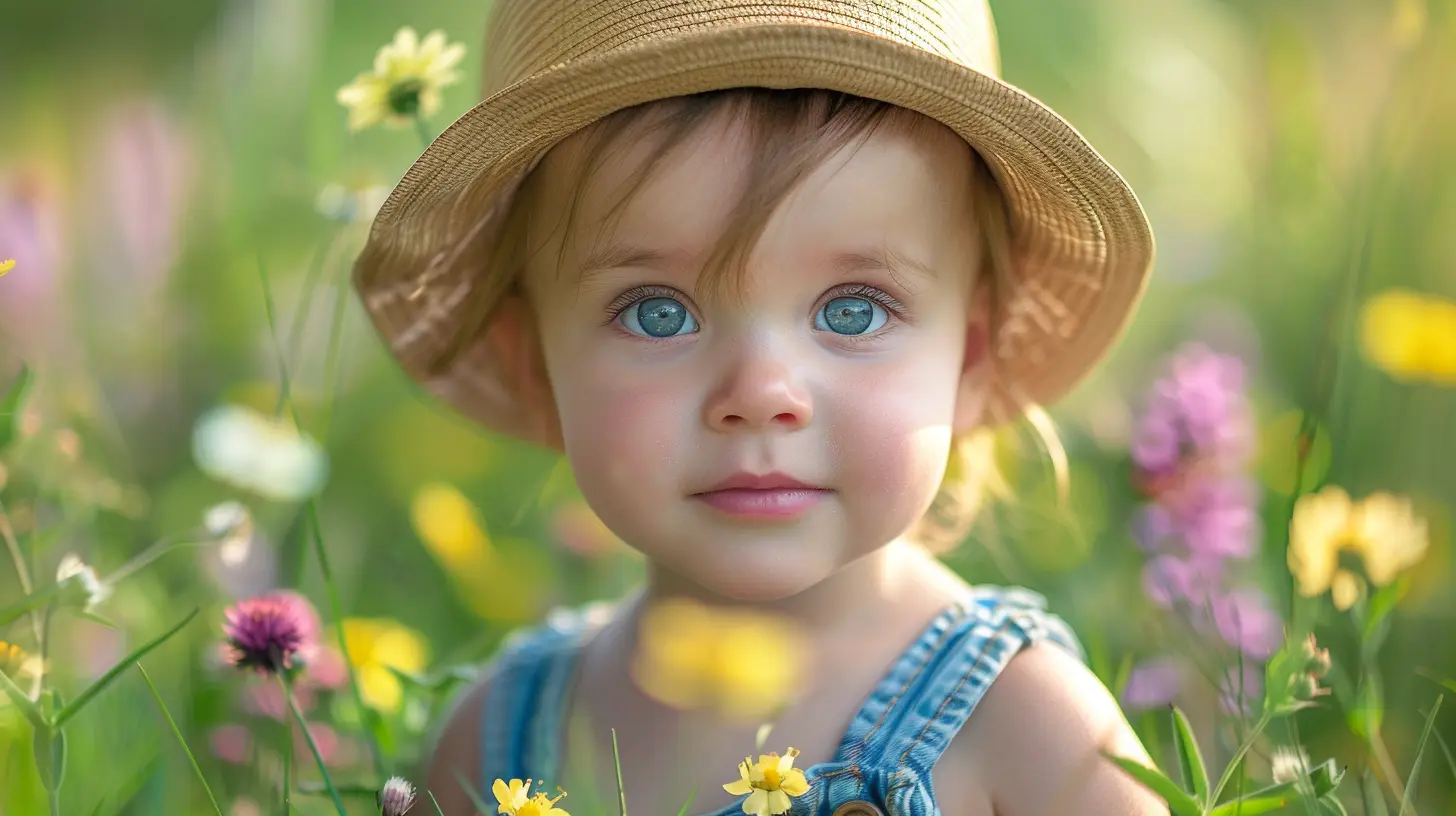
The Science Behind It: How Nature Boosts Development
1. Physical Development: Building Strong Little Bodies
When toddlers run around outside, they’re not just burning off energy. They’re improving balance, coordination, and gross motor skills. Think about the movements they make while climbing a stump, hopping over a rock, or walking on uneven ground—these natural activities work muscles in a way indoor play sometimes can’t match.Also, exposure to sunlight helps their bodies produce Vitamin D, which is essential for bone growth and immune function. Just remember a little sunscreen goes a long way too!
2. Cognitive Development: Brains in Bloom
Nature stimulates problem-solving and decision-making. Should I jump over this puddle or walk around it? Will this stick fit in that hole? Should I follow that butterfly?These seemingly small decisions are actually mini workouts for a toddler’s brain. They help build neural pathways and encourage curiosity, observation, and experimentation—all crucial for cognitive growth.
Playing outside also sparks creativity. A stick can become a magic wand, a pirate sword, or even a pretend fishing rod. The possibilities? Endless.
3. Language Skills: Chatter in the Wild
Ever notice how your toddler starts narrating everything when they’re playing outside? “Look! Ant! Bug! Big rock!”Outdoor play naturally invites conversation, labeling, and storytelling. You can help expand their vocabulary by pointing out things around you: "That's a pinecone," or "Hear that? It's a woodpecker."
These real-world experiences give meaning to words and trigger richer language development than digital screens ever could.
4. Social and Emotional Growth: Nature Nurtures the Soul
Being in nature can calm even the most high-energy toddler. There’s something soothing about the gentle sway of trees and the sound of a breeze. It’s like nature has its own lullaby.For toddlers, playing outdoors also means learning to take turns at the slide, cooperate during a game of tag, and express emotions freely. It helps build empathy (towards animals, plants, and other kids), independence, and confidence.
Plus, when toddlers learn to take small risks—like climbing a rock or balancing on a log—they’re also building resilience and trust in their own abilities.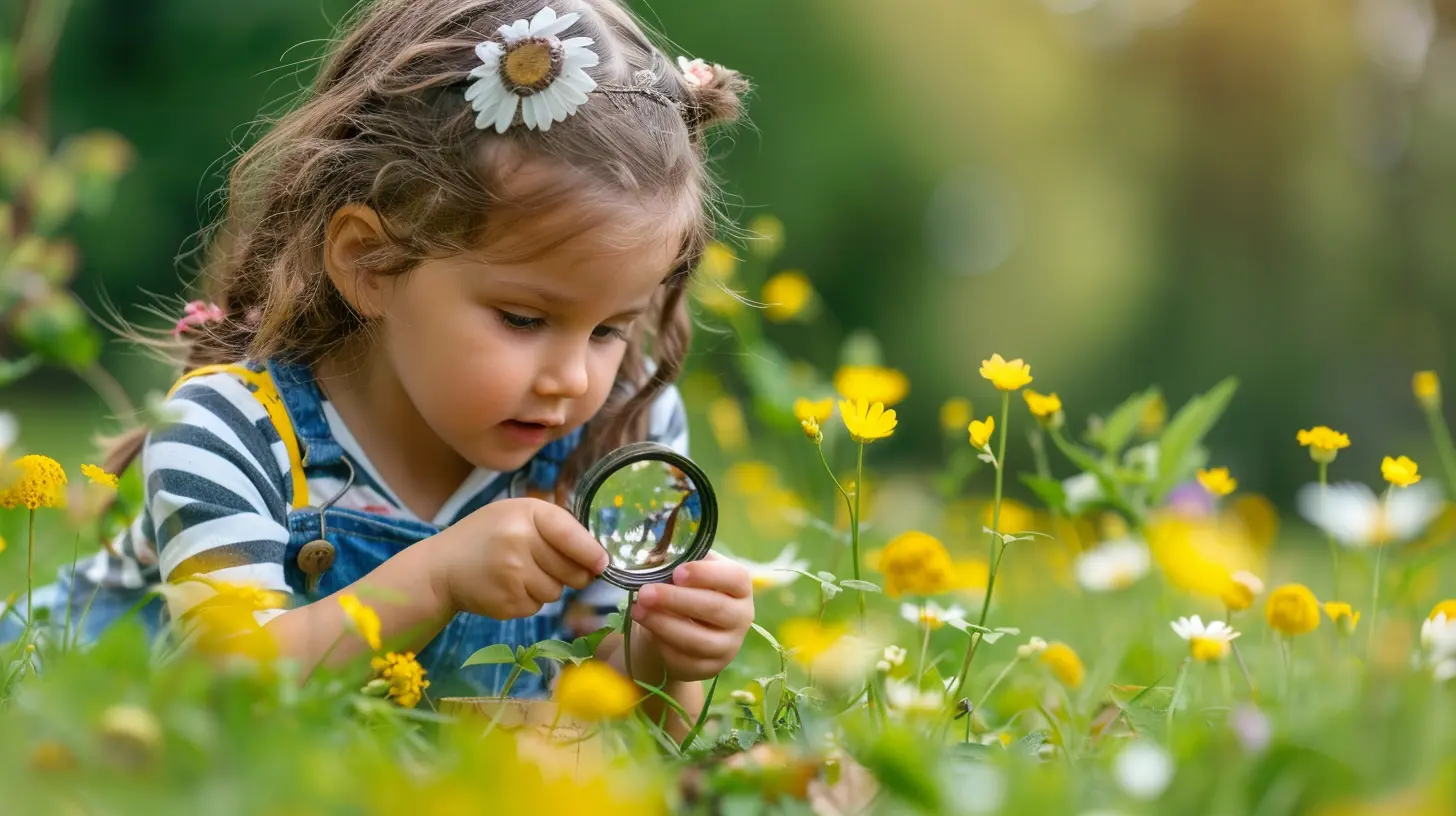
Benefits of Free Play in Natural Settings
Let’s talk about the magic of unstructured play—the kind that doesn’t involve rules or adult instructions. Nature is the perfect canvas for this.When toddlers are allowed to explore freely, they take the lead. They learn to trust themselves, experiment, and engage their imaginations. And guess what? That’s exactly what early childhood experts recommend for optimal development.
So go ahead, let your little one get dirty, make mud pies, and collect sticks. That messy, unfiltered engagement? It’s pure developmental gold.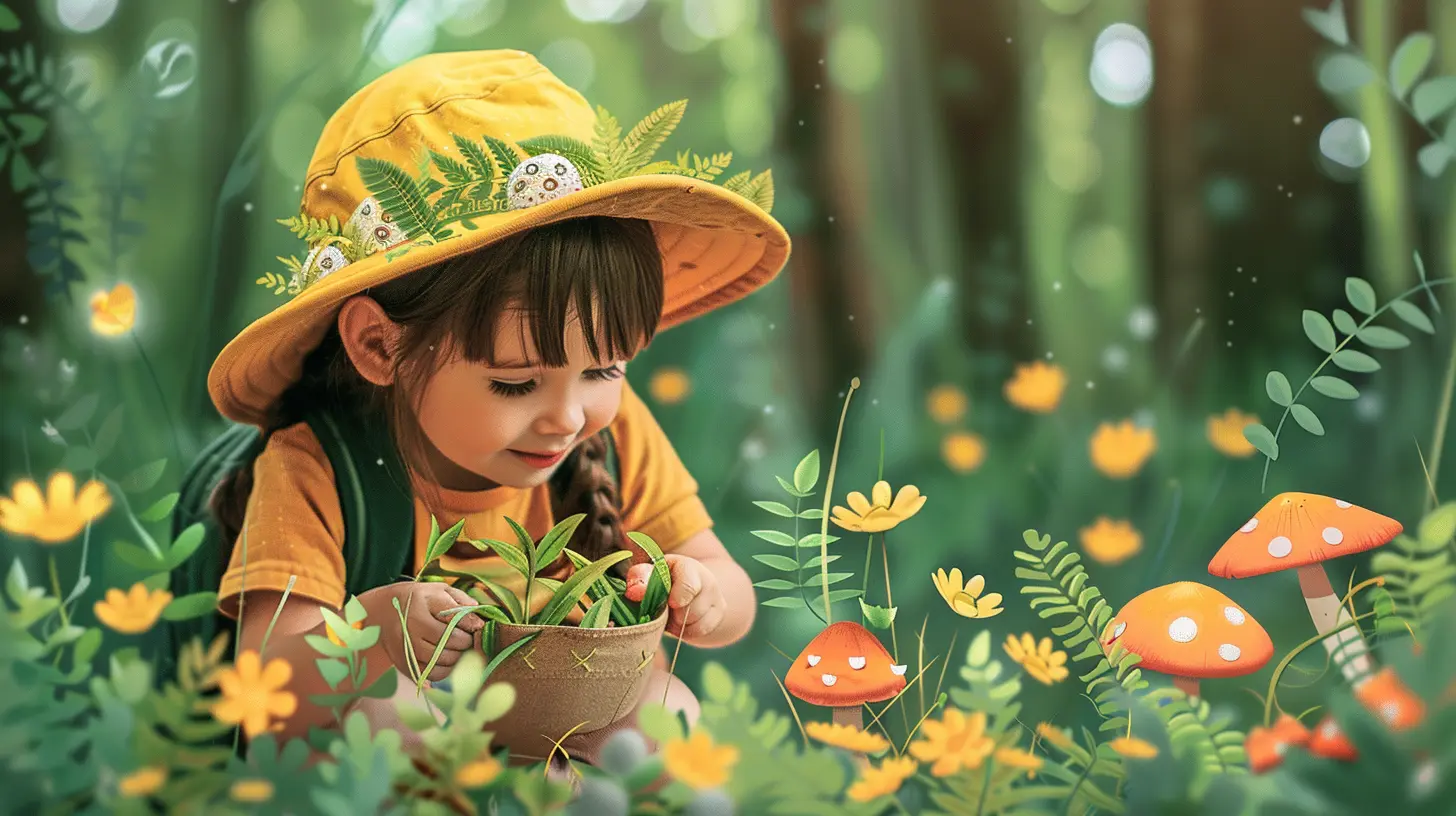
Easy Outdoor Activities to Try with Your Toddler
You don’t need a forest or fancy hiking trails to get these benefits. Your backyard, a neighborhood park, or even a patch of grass can do the trick. The key is to be present and playful.Here are some easy, low-prep outdoor activities your toddler will love:
1. Nature Scavenger Hunt
Make a simple list: rock, flower, leaf, bug. Head outside and help your toddler find them. You’re building observation skills and vocabulary all at once.2. Mud Kitchen
Give them old pots, spoons, and bowls. Add dirt, water, and leaves. Let them cook up a storm. It's messy but magical.3. Obstacle Course
Use sticks, stones, or toy cones to create a mini playground. Jump, crawl, balance, and run. Bonus: it tires them out for bedtime.4. Bug Safari
Hand your toddler a magnifying glass and go on a hunt for ants, snails, or ladybugs. Teach them to observe gently and be respectful.5. Cloud Spotting
Lay on a blanket and look for shapes in the clouds. It's calm, creative, and a great way to introduce mindfulness.6. Painting with Nature
Use leaves, sticks, and flowers as paintbrushes. Grab some paper and water-based paints, and head outside for a mini art session.Nature Is the Ultimate (and Free) Sensory Experience
We often think "sensory play" means bins of colored rice or expensive toys, but nature comes packed with sensory experiences—sights, sounds, scents, and textures.Feeling the crunch of dry leaves, listening to chirping birds, squishing mud between fingers—these are all-natural, all-in experiences for toddlers. And the best part? You don’t have to clean rice out of your carpet afterward.
How Much Outdoor Time Do Toddlers Need?
There’s no one-size-fits-all, but experts suggest at least 1–2 hours of outdoor playtime per day. That might sound like a lot, but you can break it up into smaller chunks—morning strolls, afternoon backyard play, evening walks.When you make it a daily habit, it becomes part of your routine—just like mealtime or bath time.
Overcoming Common Outdoor Play Challenges
So now you're probably thinking, “Sure, this all sounds amazing... but what about bugs? Or bad weather? Or my toddler eating dirt?”Totally valid concerns. Here’s how to tackle some common roadblocks:
1. Bug Worries?
Dress your toddler in light-colored clothing and use a natural repellent. Teach them not to touch bugs they don’t recognize, but don’t panic over a little ant encounter.2. Too Hot? Too Cold?
The secret is layering. Bundle up in winter with waterproof boots and mittens. In summer, aim for mornings or late afternoons when the sun is gentle, and don’t forget hats and water.3. Mess Stress?
Outfit your toddler in “outdoor clothes” you don’t mind getting dirty. Keep a towel and change of clothes handy, and remind yourself—messy play is meaningful play.4. Safety First
Always keep a close watch, especially near water or steep areas. Set clear boundaries (“We don’t go past this tree”) and teach your toddler to check with you before exploring a new area.Making Outdoor Time a Family Habit
You don’t have to plan big adventures to make outdoor play meaningful. Routine walks, backyard gardening, and spontaneous nature crafts are all wins.Here are some tips to weave outdoor time into your family’s rhythm:
- Keep gear handy: Have go-to outdoor shoes, jackets, and a snack bag ready.
- Model behavior: If you show enthusiasm for nature, your kids will too.
- Mix it up: Visit different parks, walk different paths, explore different times of the day.
- Connect with other families: Outdoor playdates can be fun and motivating.
The Long-Term Payoff
Aside from all the immediate developmental perks, kids who spend time in nature tend to grow into more active, creative, and emotionally resilient adults.You’re not just giving your toddler fresh air and entertainment—you’re laying the foundation for lifelong habits that support physical and mental well-being.
And let’s not overlook your own mental health. Spending time in nature can lower your stress as a parent. Win-win, right?
Final Thoughts: Step Outside, Grow Inside
In a world full of screens, schedules, and overstimulation, nature is the reset button both toddlers and parents need. It’s open-ended, unstructured, and full of sensory delights—exactly what growing minds and bodies crave.So, slip on those sneakers, grab your toddler’s hand, and head outside. Whether you’re splashing in puddles or collecting colorful leaves, you’re doing so much more than just playing—you’re shaping a healthy, happy future.
And hey, you might be surprised how healing a little dirt under the nails can be.
all images in this post were generated using AI tools
Category:
Toddler MilestonesAuthor:

Karen Hurst
Discussion
rate this article
2 comments
Imani McKeehan
Thank you for this insightful article! It beautifully highlights the vital role nature plays in toddler development. Encouraging outdoor exploration not only fosters curiosity but also strengthens their connection to the environment. Looking forward to implementing these ideas with my little one!
September 17, 2025 at 4:13 AM

Karen Hurst
Thank you for your kind words! I'm glad you found the article helpful, and I hope you and your little one enjoy exploring the outdoors together!
Azura Murphy
Engaging toddlers in nature fosters curiosity, creativity, and essential skills for healthy development.
June 15, 2025 at 3:39 AM

Karen Hurst
Absolutely! Nature provides endless opportunities for exploration and learning, crucial for toddlers' growth and development.


